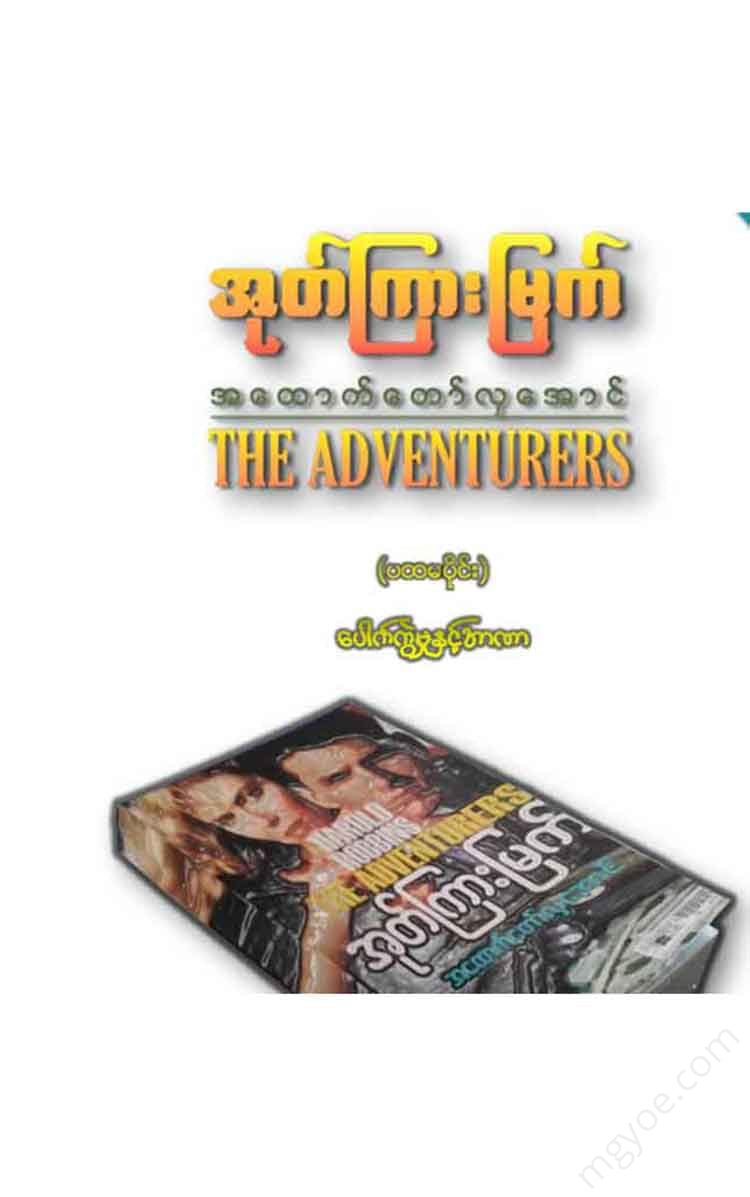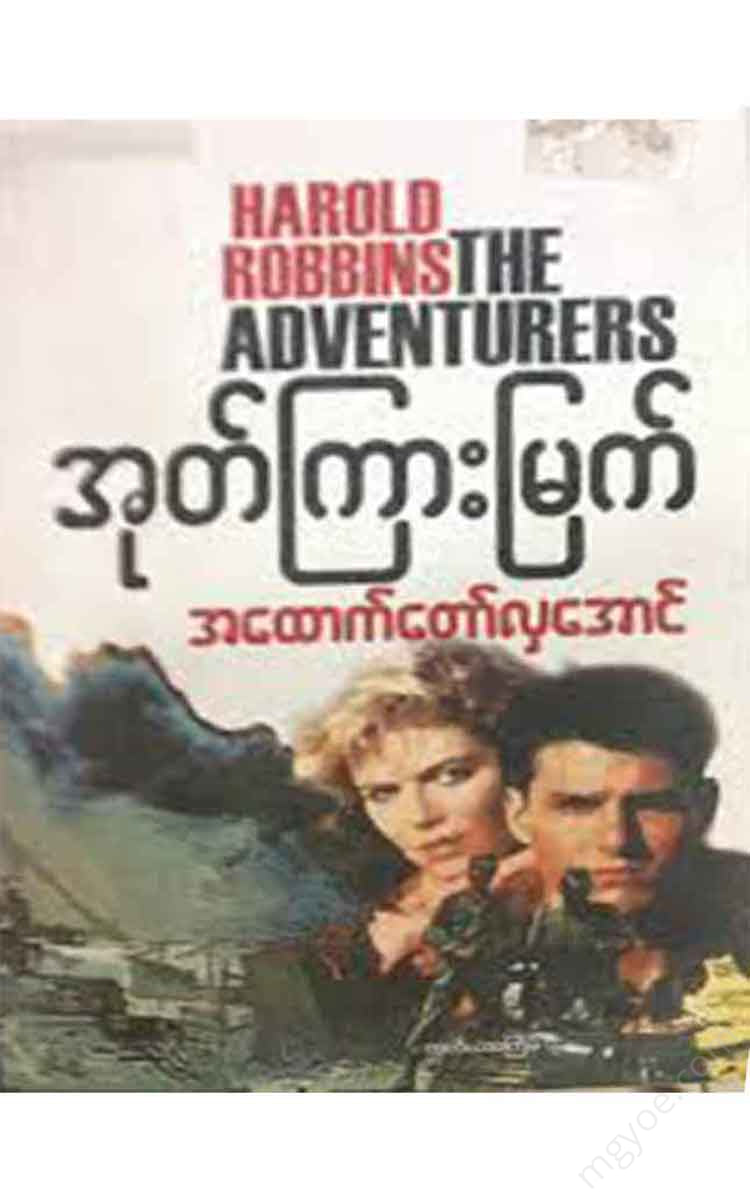Other Websites
Athitaw Hla Aung - Ookya Myak
Athitaw Hla Aung - Ookya Myak
Couldn't load pickup availability
The story begins in the archive.
It has been more than a dozen years since the violent rebellion that led to his downfall. His time and power in this world have come to an end. At least the small, narrow tomb in which his body had finally rested has been demolished. Now, all that is left to do is to come to an end. His remains will return to the great earth, the original home of his life, as dust and ashes.
The black painted crosses on the earthen walls around the cemetery shimmered in the hot tropical sun. A taxi pulled up in front of the large, rusted iron gates that led into the cemetery. An American journalist got out of the taxi. He handed the driver a five-peso bill. Before the driver could say, “Thank you,” he turned away.
The small flower market was already bustling. Women dressed in black were buying small bouquets of flowers. Their black masks seemed to protect them from the heat outside and the heat of their own inner suffering. Beggars were also seen there. Hungry children were also crying with tears in their eyes. When an American journalist passed by, they stretched out their dirty hands and begged. He also inadvertently added coins. When they passed through the gate and entered, it was completely quiet. It was as if they had pressed a magic button and entered the outside world. Inside a small, unguarded guardhouse, they saw a uniformed man sitting. He walked towards the guard.
"Please, where is Nas' grave?"
He thought a look of surprise appeared on the guard's face as he answered his question.
"Street number 6, house number 50"
The American journalist smiled and turned away. Just as people live after death, so too do they have streets, houses, and house numbers. The sidewalks are known as streets, and the brick walls of the buildings on either side of the streets, where the bodies are kept, are known as houses.
He pondered the meaning of the astonished expression he had seen on the guard's face.
Earlier, in the lobby of the new hotel, he had been leafing through the newspapers of that country. He did this every time he arrived in a new city or a new country. As he leafed through the pages, he came across the advertisement he was looking for. Among the large advertisements on the back pages of the newspaper, four small lines of text were lost.
He walked along the sidewalk between the magnificent private tombs. He stared at the names on the tombstones without thinking. Ramirez, Santos, Oberon, Lopez... He felt the cold from the white stone despite the hot sun. He also noticed that the dogs were getting colder with their collars. The sidewalk widened. To his left he could see a large, open field. It was full of small graves. Small, unmaintained, unmarked graves. The graves of the poor. The dead were buried in their heads, dug holes, and left without a trace. To his right were buildings, rows of cells where the dead were stored.
These buildings are large structures covered with red and brown tiles. They are about twenty feet high, forty feet wide, and eighty feet long. The brick walls are made of white plaster. There is not much space between the rooms, so there is more space. The names of the deceased are engraved in these rooms. Above is a cross, below is the name, date of death, and year in order.
He looked up at the first building he saw. He saw a small metal plate hanging from it. Street number (3), house number (1). He had a long way to go. He had passed the shadows and entered the sunlight. He adjusted his collar and walked slowly. The appointed time had come. He didn't want to be late.
He thought he had arrived at the wrong place. There was no one there. Not even a worker. He checked the metal signs on the building. Then he looked down at his watch. Everything was correct. He opened the newspaper, wondering if the dates were wrong. The date on the warning notice was correct. Only then could he sigh, light a cigarette, and inhale. This was Latin America. There was no time limit like in our country.
I slowly walked around the building, reading the names on the tombstones.
Finally, he found the name he was looking for. It was hidden in the shadows in the southwest corner of the building. As soon as he saw it, he instinctively took off his hat. He stared at the carved letters.
Dex
May -10
1955
Behind him he heard the sound of a cart pulling on the gravel road. He looked in the direction of the sound. A tired donkey was pulling an open cart. The donkey was working hard, pulling in the hot sun. Its ears were pricked up and pressed back against its head. The cart was driven by a worker in a colorful khaki suit. Next to him sat a man in a black suit and a black hat. His collars were frayed. Next to the cart walked a worker carrying a pickaxe over his shoulder.
When the cart stopped, a man in black came down. He took a piece of paper from his coat pocket and glanced at it. Then he looked at the names carved on the brick wall. Even before he got close, the journalist realized that these were the people who had come to open this tomb.
When the foreman winked, the worker carrying the pickaxe walked towards him and looked up at the small panel in the brick wall. He was muttering something in Spanish. The worker who had been left on the cart got off the cart with a bored expression and pulled a small wooden ladder behind him. He leaned the ladder against the brick wall and climbed up. He looked closely at the panel again.
“Dax,” he said.
His voice shattered the silence of the cemetery.
"Dax"
The chief nodded and muttered again in a satisfied tone. The worker carrying the pickaxe also nodded. He also spat on the ground, saying, "Dax," in a delighted voice.
"Pakchon"
The worker on the ladder held out his hand. The worker below held out a chisel. The man on the ladder skillfully carved a small stone slab that was sealed with mortar. The letters inscribed on the mortar fell apart and scattered. At that moment, the sun came over the corner of the building, shining brightly on the worker. Suddenly, Paul pulled his hat down to shade his eyes. Then he carved through the mortar with the chisel. This time, however, the stones inside were already broken, and the fragments fell.
The journalist looked at the foreman. The foreman was looking at the workers. But he didn't seem to be interested in the work. He seemed bored with the whole business. He seemed interested in something else. He turned around when the journalist walked by him.
"Aren't his relatives coming?" the journalist asked in stammering Spanish.
“No one is there anymore,” the chief replied, shrugging his shoulders, even in Spanish. “But in the newspaper . . .” The journalist stopped halfway through his sentence. Moreover, he didn't speak Spanish anymore.
"Do you speak English?" he asked.
"I can speak. Please give me any command you want."
He replied with a proud smile.
"I saw the warning ad in the newspaper and thought someone must be there."
The journalist replied, "I feel relieved now that I'm speaking English."
"There is no one else," the chief replied, cursing the sudden appearance of the sun.
"But who put this ad in? Someone must have. He must be a very famous person."
“The cemetery maintenance department has announced. It’s been a long time since someone came to claim his body. There are other people waiting who want this place. The city is slowly growing, and the population is getting very dense. You’ll see.”
"I see. Is there anyone else? Family, friends, and associates. He was a very friendly person."
"The dead are lonely," the cemetery manager replied, lowering his eyes.
A voice came from the stairs. They all looked up. The tomb had opened up through a small opening in the brick wall. A discolored head made of rot-resistant wood could be seen inside. The remaining plaster was being removed with the tip of the pickaxe. Then he handed the pickaxe back to the worker below, who removed the remaining plaster with his own hands. He reached in and pulled out the head.
"What are you going to do with this head?"
The journalist turned to the chief and asked.
"We'll burn it down. Very quickly. It's been so long that there's nothing inside but bones."
"And then"



